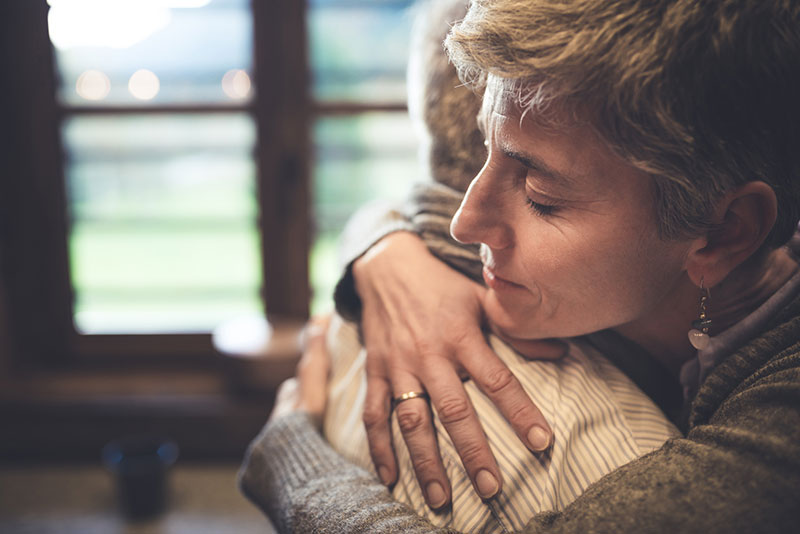
Learn how to handle funeral and estate plans when a senior family member passes.
When a senior family member passes away, there are many administrative tasks that must be handled in a timely manner. These tasks can be challenging to manage while also dealing with grief.
To make this time a bit less daunting, our home care specialists have compiled the following practical timeline so you will know specifically what should be addressed when a senior family member passes.
First Steps: Right Away
- Obtain a declaration of death. Depending upon the person’s location at the time of passing, this might be supplied by a hospice nurse, or staff in a hospital or long-term care facility. If you are caring for the individual in your own home without having the support of healthcare providers, call 911. EMTs will provide transportation to the ER for a legal pronouncement of death.
- Notify family and friends. There are lots of ways you can make this happen, according to what is most preferable for you. You may want to personally get in touch with each individual through a phone call, email, or in-person visit. You might want to ask for help, designating others to contact a certain group of people (for example faith community members, friends from organizations the person was involved in, neighbors, etc.) to help spread the news. Or perhaps you might want to post on social media, allowing you to make one statement that reaches everybody in the person’s circle of acquaintances.
- Schedule a meeting with immediate family members to organize funeral plans. If the loved one had prepaid/preplanned final arrangements, review those plans with immediate family. If not, start the conversation on preliminary information: which funeral home you would prefer to go with, the available budget, and any high-level details you want to make sure to include.
Next Steps: Within 2 or 3 Days of Passing
- Put together funeral plans. With the suggestions from your initial family gathering, meet with the funeral home staff to sort out the specifics:
- Will the person be cremated or buried?
- Which type of casket or urn will you want?
- Where will the funeral or memorial service be held?
- Who will write the obituary? Act as pallbearers? Speak at the service? Write thank-you notes? Arrange for a post-funeral gathering?
- Make sure the property and any possessions are secure. Lock up any jewelry, cash, or other precious items, along with the person’s house and car. Also, in the event that person had any pets, determine who can take over ownership – making sure they get plenty of care and attention, as they will be affected by the loss and changes too.
- Forward mail. The post office can set up a forwarding order so that the person’s mail will be rerouted to the appropriate person dealing with their affairs. The designated person will also want to monitor mail to terminate subscriptions and services, take care of any bills, etc.
Final Steps: A Couple of Weeks After Passing
- Pull together paperwork. Request ten certified copies of the death certificate, which will be required to close bank accounts, file insurance claims, and more. The funeral home can assist you with this, or you can request them yourself from the state vital records office. You’ll also need to locate the person’s will and find out who the executor is.
- Speak to an attorney and CPA. An attorney, chosen by the executor, will ease the duty of settling the estate and distributing assets. A CPA can assist with filing the last tax return on the person’s behalf.
- Alert other organizations. The funeral home should get in touch with the Social Security Administration, but you’ll want to verify this. Additionally, if the person had a life insurance plan, this is the time to file a claim. Talk to the person’s bank(s), stockbrokers, and financial advisers to find out the beneficiary of the accounts and provide a copy of the death certificate. You will also need to close any credit card accounts and get in touch with the Department of Motor Vehicles to cancel their driver’s license.
When a senior loved one passes away, there is often a surviving spouse who needs support and care. Absolute Companion Care, an award-winning provider of home and memory care in Towson, MD and the surrounding areas, is here to help. Our care team offers friendly companionship to reduce loneliness, help planning and preparing nourishing meals, assistance with a variety of personal care needs, and much more. Let us help so that you can focus on the many practical tasks that need to be addressed following a loved one’s passing. Reach out to us at 410-357-9640 to find out more about our home care services.
